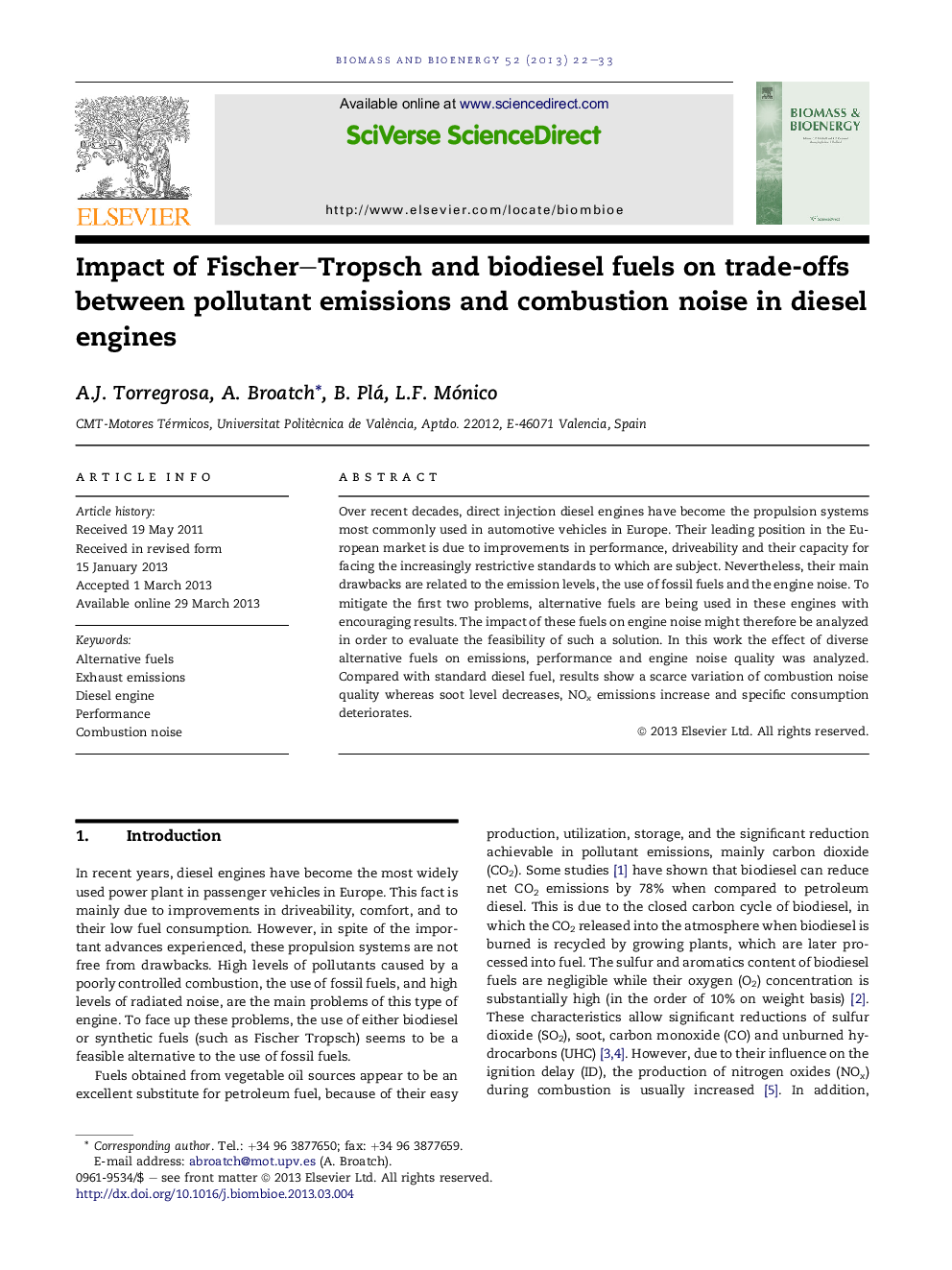| Article ID | Journal | Published Year | Pages | File Type |
|---|---|---|---|---|
| 677060 | Biomass and Bioenergy | 2013 | 12 Pages |
•Biodiesel combustion may reduce soot, but affecting consumption, NOx and noise.•Combustion changes induced by the use of biodiesel deteriorate engine noise quality.•Combustion settings must be adapted to preserve environmental benefits of biodiesel.•Adequate EGR levels may provide a good emissions-noise trade-off with biodiesel.
Over recent decades, direct injection diesel engines have become the propulsion systems most commonly used in automotive vehicles in Europe. Their leading position in the European market is due to improvements in performance, driveability and their capacity for facing the increasingly restrictive standards to which are subject. Nevertheless, their main drawbacks are related to the emission levels, the use of fossil fuels and the engine noise. To mitigate the first two problems, alternative fuels are being used in these engines with encouraging results. The impact of these fuels on engine noise might therefore be analyzed in order to evaluate the feasibility of such a solution. In this work the effect of diverse alternative fuels on emissions, performance and engine noise quality was analyzed. Compared with standard diesel fuel, results show a scarce variation of combustion noise quality whereas soot level decreases, NOx emissions increase and specific consumption deteriorates.
